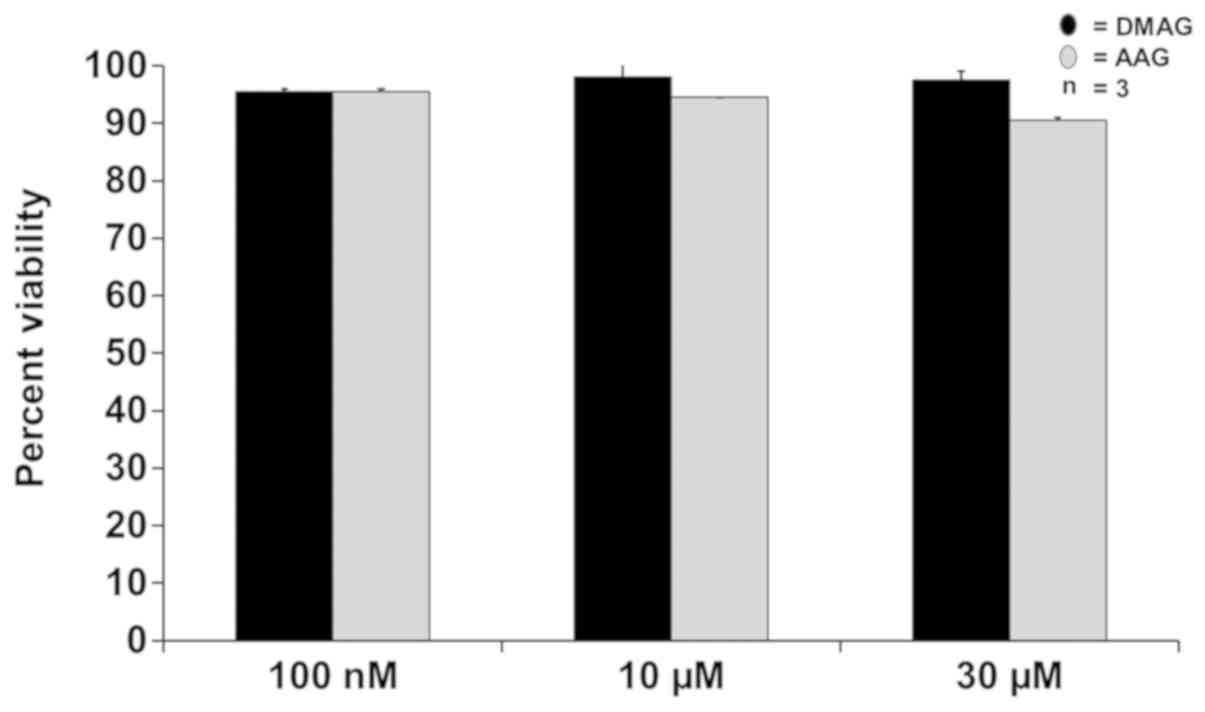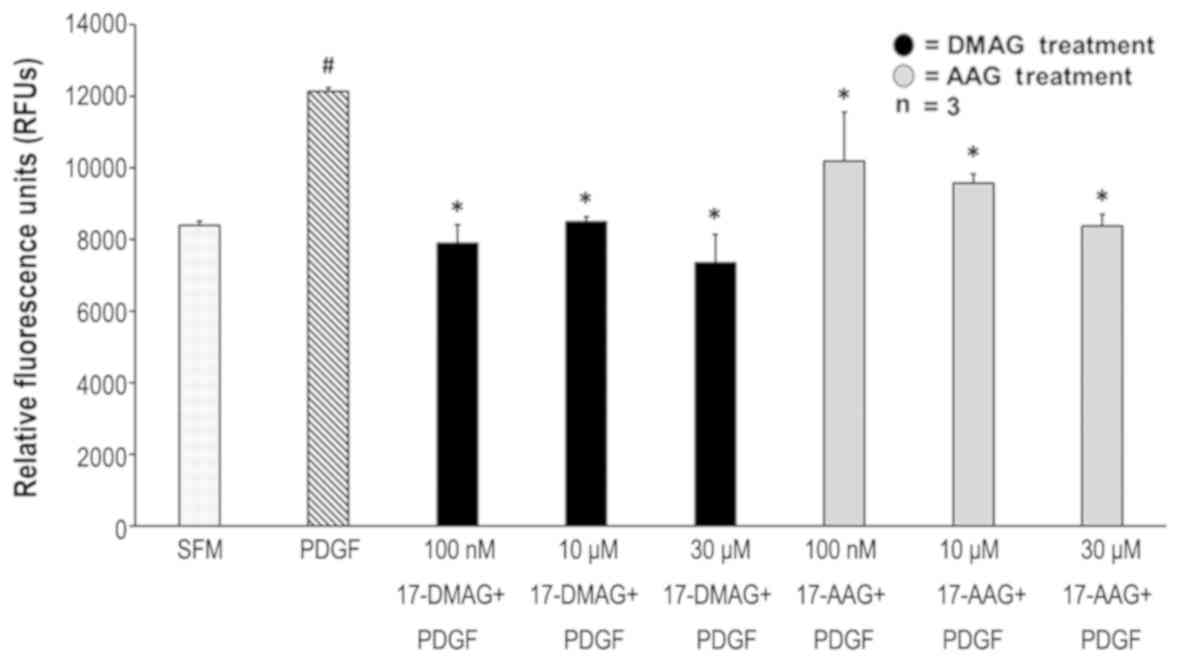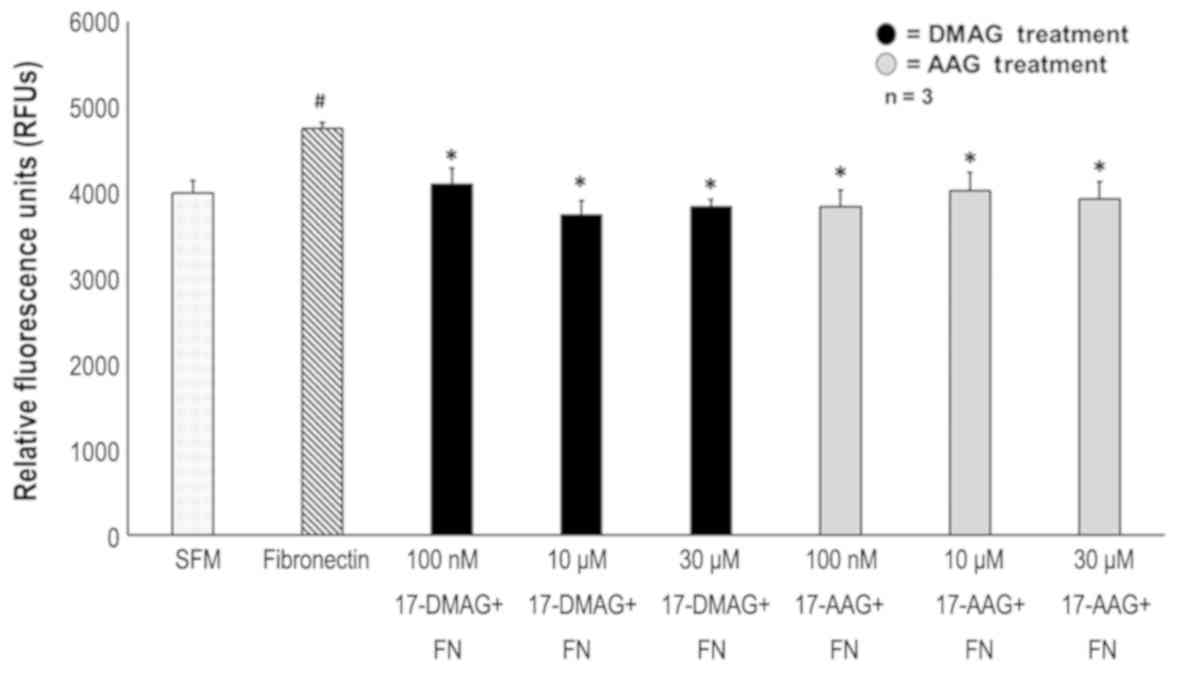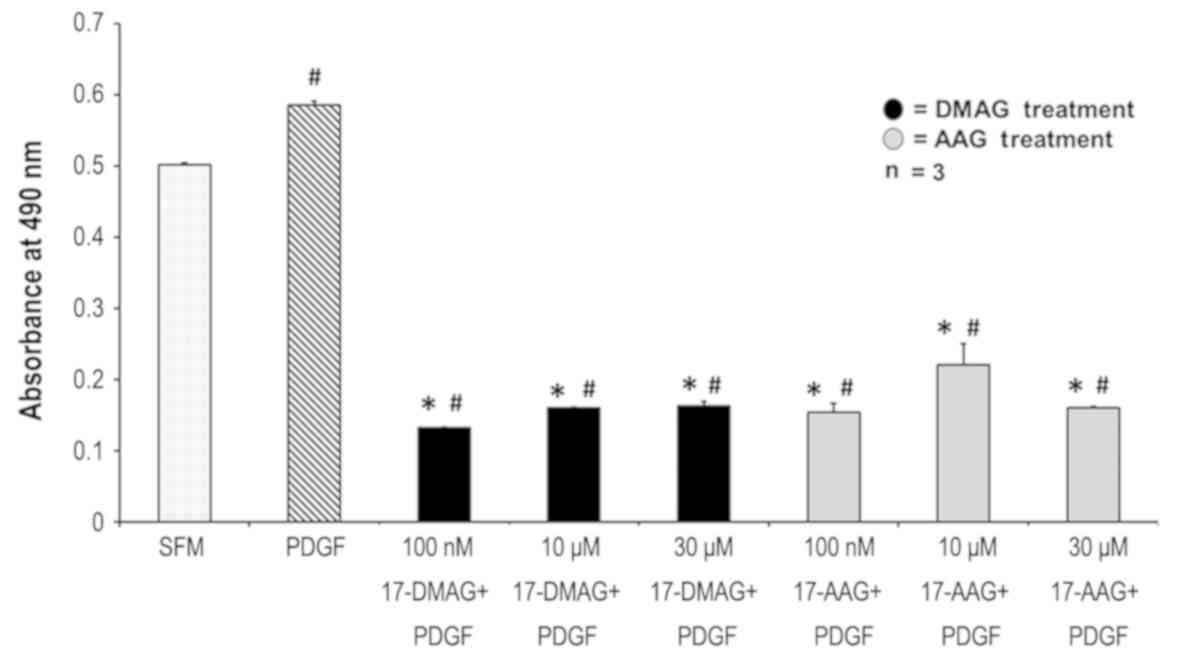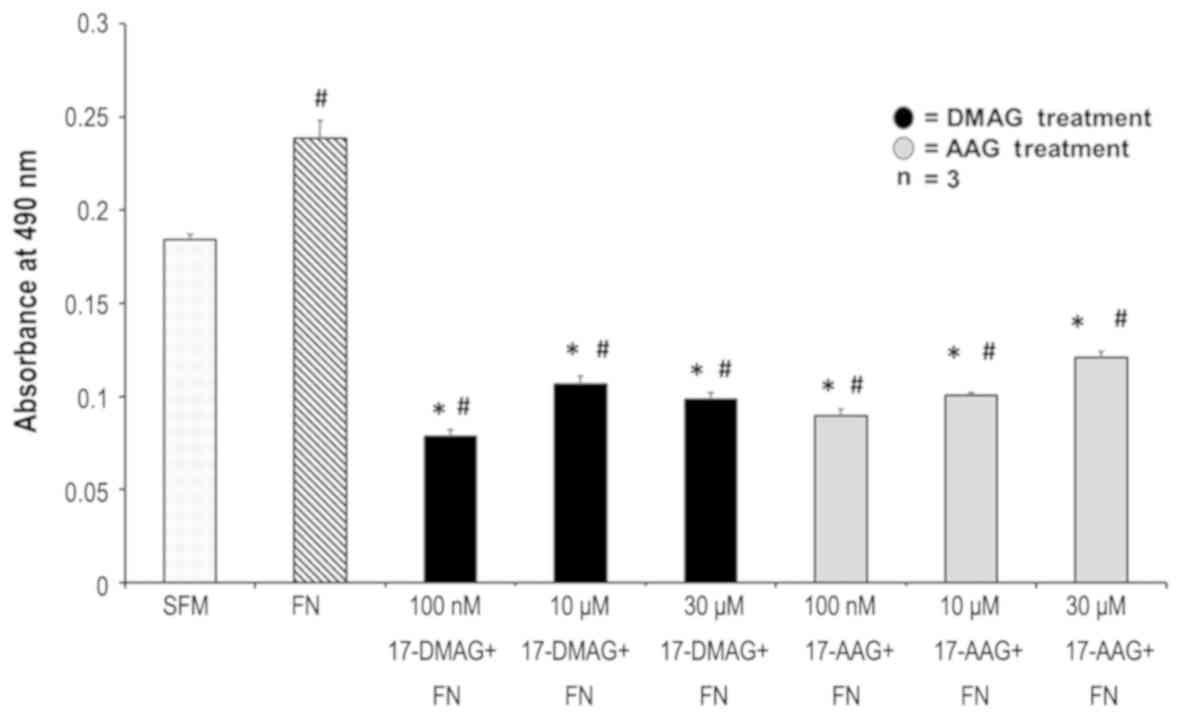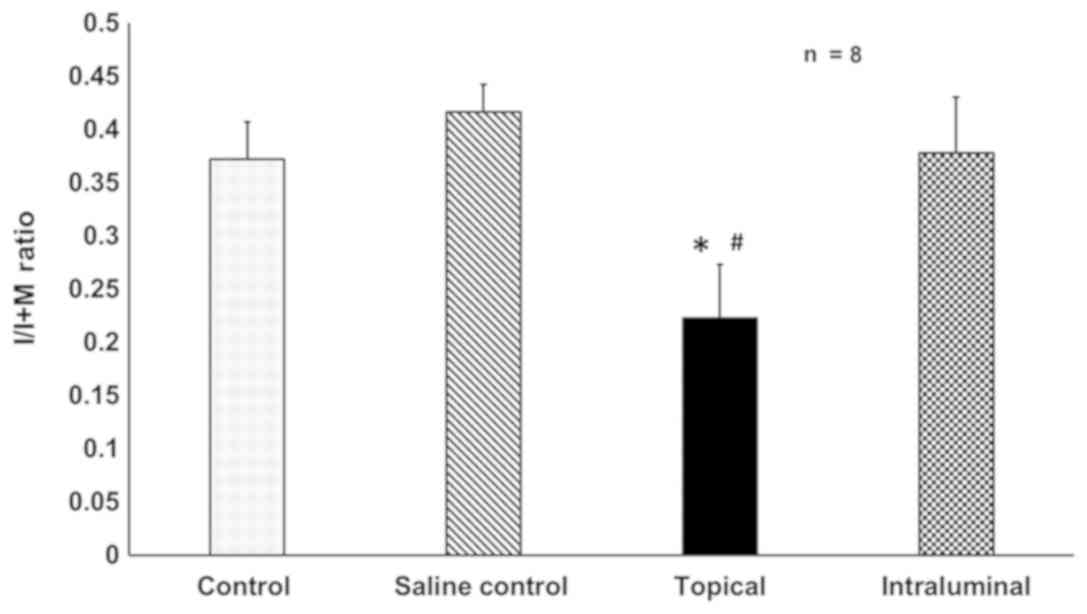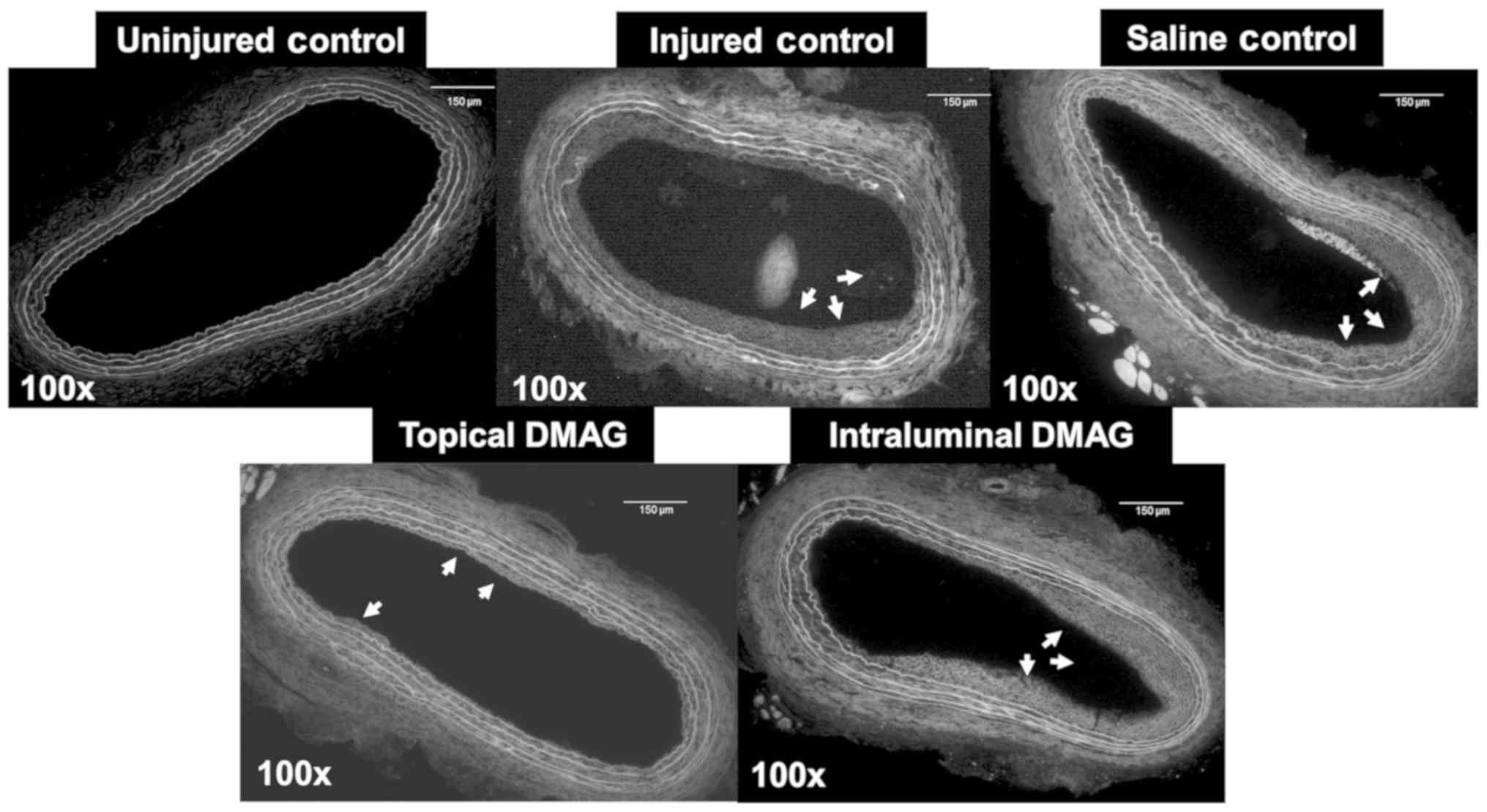|
1
|
Valentine RJ, Grayburn PA, Eichhorn EJ,
Myers SI and Clagett GP: Coronary artery disease is highly
prevalent among patients with premature peripheral vascular
disease. J Vasc Surg. 19:668–674. 1994. View Article : Google Scholar : PubMed/NCBI
|
|
2
|
McDivitt JD, Braun M and Kassop D:
Cardiovascular disease: Lower extremity peripheral artery disease.
FP Essent. 479:11–15. 2019.PubMed/NCBI
|
|
3
|
Asakura Y, Suzuki M, Nonogi H, Haze K,
Sato A, Inada H, Okuda Y, Yamashita K and Harano Y: Restenosis
after percutaneous transluminal coronary angioplasty in patients
with non-insulin-dependent diabetes mellitus (NIDDM). J Cardiovasc
Risk. 5:331–334. 1998. View Article : Google Scholar : PubMed/NCBI
|
|
4
|
Goel SA, Guo LW, Liu B and Kent KC:
Mechanisms of post- intervention arterial remodelling. Cardiovasc
Res. 96:363–371. 2012. View Article : Google Scholar : PubMed/NCBI
|
|
5
|
Weintraub WS: The pathophysiology and
burden of restenosis. Am J Cardiol. 100:3K–9K. 2007. View Article : Google Scholar : PubMed/NCBI
|
|
6
|
Broos K, Feys HB, De Meyer SF,
Vanhoorelbeke K and Deckmyn H: Platelets at work in primary
hemostasis. Blood Rev. 25:155–167. 2011. View Article : Google Scholar : PubMed/NCBI
|
|
7
|
Hoel AW, Yu P, Nguyen KP, Sui X, Plescia
J, Altieri DC and Conte MS: Mitochondrial heat shock protein-90
modulates vascular smooth muscle cell survival and the vascular
injury response in vivo. Am J Pathol. 181:1151–1157. 2012.
View Article : Google Scholar : PubMed/NCBI
|
|
8
|
Lianos GD, Alexiou GA, Mangano A, Mangano
A, Rausei S, Boni L, Dionigi G and Roukos DH: The role of heat
shock proteins in cancer. Cancer Lett. 360:114–118. 2015.
View Article : Google Scholar : PubMed/NCBI
|
|
9
|
Kim J, Jang SW, Park E, Oh M, Park S and
Ko J: The role of heat shock protein 90 in migration and
proliferation of vascular smooth muscle cells in the development of
atherosclerosis. J Mol Cell Cardiol. 72:157–167. 2014. View Article : Google Scholar : PubMed/NCBI
|
|
10
|
Lang SA, Klein D, Moser C, Gaumann A,
Glockzin G, Dahlke MH, Dietmaier W, Bolder U, Schlitt HJ, Geissler
EK and Stoeltzing O: Inhibition of heat shock protein 90 impairs
epidermal growth factor-mediated signaling in gastric cancer cells
and reduces tumor growth and vascularization in vivo. Mol Cancer
Ther. 6:1123–1132. 2007. View Article : Google Scholar : PubMed/NCBI
|
|
11
|
Hermane J, Eichner S, Mancuso L, Schröder
B, Sasse F, Zeilinger C and Kirschning A: New geldanamycin
derivatives with anti Hsp properties by mutasynthesis. Org Biomol
Chem. 17:5269–5278. 2019. View Article : Google Scholar : PubMed/NCBI
|
|
12
|
Mellatyar H, Talaei S,
Pilehvar-Soltanahmadi Y, Barzegar A, Akbarzadeh A, Shahabi A,
Barekati-Mowahed M and Zarghami N: Targeted cancer therapy through
17-DMAG as an Hsp90 inhibitor: Overview and current state of the
art. Biomed Pharmacother. 102:608–617. 2018. View Article : Google Scholar : PubMed/NCBI
|
|
13
|
Sausville EA, Tomaszewski JE and Ivy P:
Clinical development of 17-allylamino, 17-demethoxygeldanamycin.
Curr Cancer Drug Targets. 3:377–383. 2003. View Article : Google Scholar : PubMed/NCBI
|
|
14
|
Jiang D, Zhuang J, Peng W, Lu Y, Liu H,
Zhao Q, Chi C, Li X, Zhu G, Xu X, et al: Phospholipase Cγ1 mediates
intima formation through Akt-Notch1 signaling independent of the
phospholipase activity. J Am Heart Assoc. 6:2017. View Article : Google Scholar
|
|
15
|
Collins TC, Beyth RJ, Nelson DB, Petersen
NJ, Suarez- Almazor ME, Bush RL, Hirsch AT and Ashton CM: Process
of care and outcomes in patients with peripheral arterial disease.
J Gen Intern Med. 22:942–948. 2007. View Article : Google Scholar : PubMed/NCBI
|
|
16
|
Schillinger M and Minar E: Restenosis
after percutaneous angioplasty: The role of vascular inflammation.
Vasc Health Risk Manag. 1:73–78. 2005. View Article : Google Scholar : PubMed/NCBI
|
|
17
|
Xu Q, Metzler B, Jahangiri M and Mandal K:
Molecular chaperones and heat shock proteins in atherosclerosis. Am
J Physiol Heart Circ Physiol. 302:H506–H514. 2012. View Article : Google Scholar : PubMed/NCBI
|
|
18
|
Madrigal-Matute J, López-Franco O,
Blanco-Colio LM, Muñoz-García B, Ramos-Mozo P, Ortega L, Egido J
and Martín-Ventura JL: Heat shock protein 90 inhibitors attenuate
inflammatory responses in atherosclerosis. Cardiovasc Res.
86:330–337. 2010. View Article : Google Scholar : PubMed/NCBI
|
|
19
|
Mayer MP: Gymnastics of molecular
chaperones. Mol Cell. 39:321–331. 2010. View Article : Google Scholar : PubMed/NCBI
|
|
20
|
Pearl LH and Prodromou C: Structure and
mechanism of the Hsp90 molecular chaperone machinery. Annu Rev
Biochem. 75:271–294. 2006. View Article : Google Scholar : PubMed/NCBI
|
|
21
|
Mjahed H, Girodon F, Fontenay M and
Garrido C: Heat shock proteins in hematopoietic malignancies. Exp
Cell Res. 318:1946–1958. 2012. View Article : Google Scholar : PubMed/NCBI
|
|
22
|
Helkin A, Maier KG and Gahtan V:
Thrombospondin-1, −2 and −5 have differential effects on vascular
smooth muscle cell physiology. Biochem Biophys Res Commun.
464:1022–1027. 2015. View Article : Google Scholar : PubMed/NCBI
|
|
23
|
Doran AC, Meller N and McNamara CA: Role
of smooth muscle cells in the initiation and early progression of
atherosclerosis. Arterioscler Thromb Vasc Biol. 28:812–819. 2008.
View Article : Google Scholar : PubMed/NCBI
|
|
24
|
Liu DH, Yuan HY, Cao CY, Gao ZP, Zhu BY,
Huang HL and Liao DF: Heat shock protein 90 acts as a molecular
chaperone in late-phase activation of extracellular
signal-regulated kinase 1/2 stimulated by oxidative stress in
vascular smooth muscle cells. Acta Pharmacol Sin. 28:1907–1913.
2007. View Article : Google Scholar : PubMed/NCBI
|
|
25
|
Boucherat O, Peterlini T, Bourgeois A,
Nadeau V, Breuils- Bonnet S, Boilet-Molez S, Potus F, Meloche J,
Chabot S, Lambert C, et al: Mitochondrial HSP90 accumulation
promotes vascular remodeling in pulmonary arterial hypertension. Am
J Respir Crit Care Med. 198:90–103. 2018. View Article : Google Scholar : PubMed/NCBI
|
|
26
|
Wang GK, Li SH, Zhao ZM, Liu SX, Zhang GX,
Yang F, Wang Y, Wu F, Zhao XX and Xu ZY: Inhibition of heat shock
protein 90 improves pulmonary arteriole remodeling in pulmonary
arterial hypertension. Oncotarget. 7:54263–54273. 2016.PubMed/NCBI
|
|
27
|
Li YP, Chen JJ, Shen JJ, Cui J, Wu LZ,
Wang Z and Li ZR: Synthesis and biological evaluation of
geldanamycin analogs against human cancer cells. Cancer Chemother
Pharmacol. 75:773–782. 2015. View Article : Google Scholar : PubMed/NCBI
|
|
28
|
Supko JG, Hickman RL, Grever MR and
Malspeis L: Preclinical pharmacologic evaluation of geldanamycin as
an antitumor agent. Cancer Chemother Pharmacol. 36:305–315. 1995.
View Article : Google Scholar : PubMed/NCBI
|
|
29
|
Egorin MJ, Lagattuta TF, Hamburger DR,
Covey JM, White KD, Musser SM and Eiseman JL: Pharmacokinetics,
tissue distribution, and metabolism of
17-(dimethylaminoethylamino)-17-demethoxygeldanamycin (NSC 707545)
in CD2F1 mice and Fischer 344 rats. Cancer Chemother Pharmacol.
49:7–19. 2002. View Article : Google Scholar : PubMed/NCBI
|















